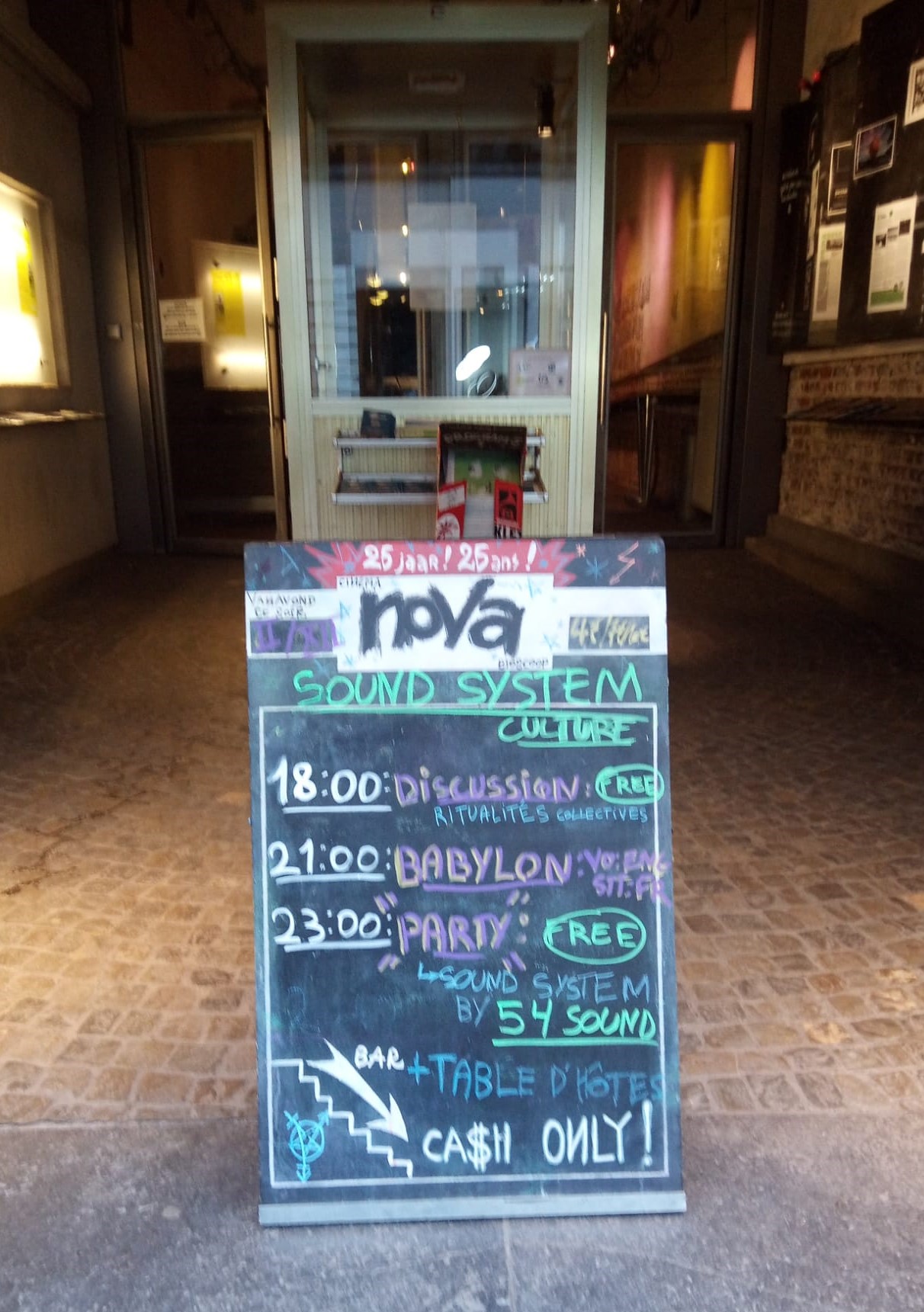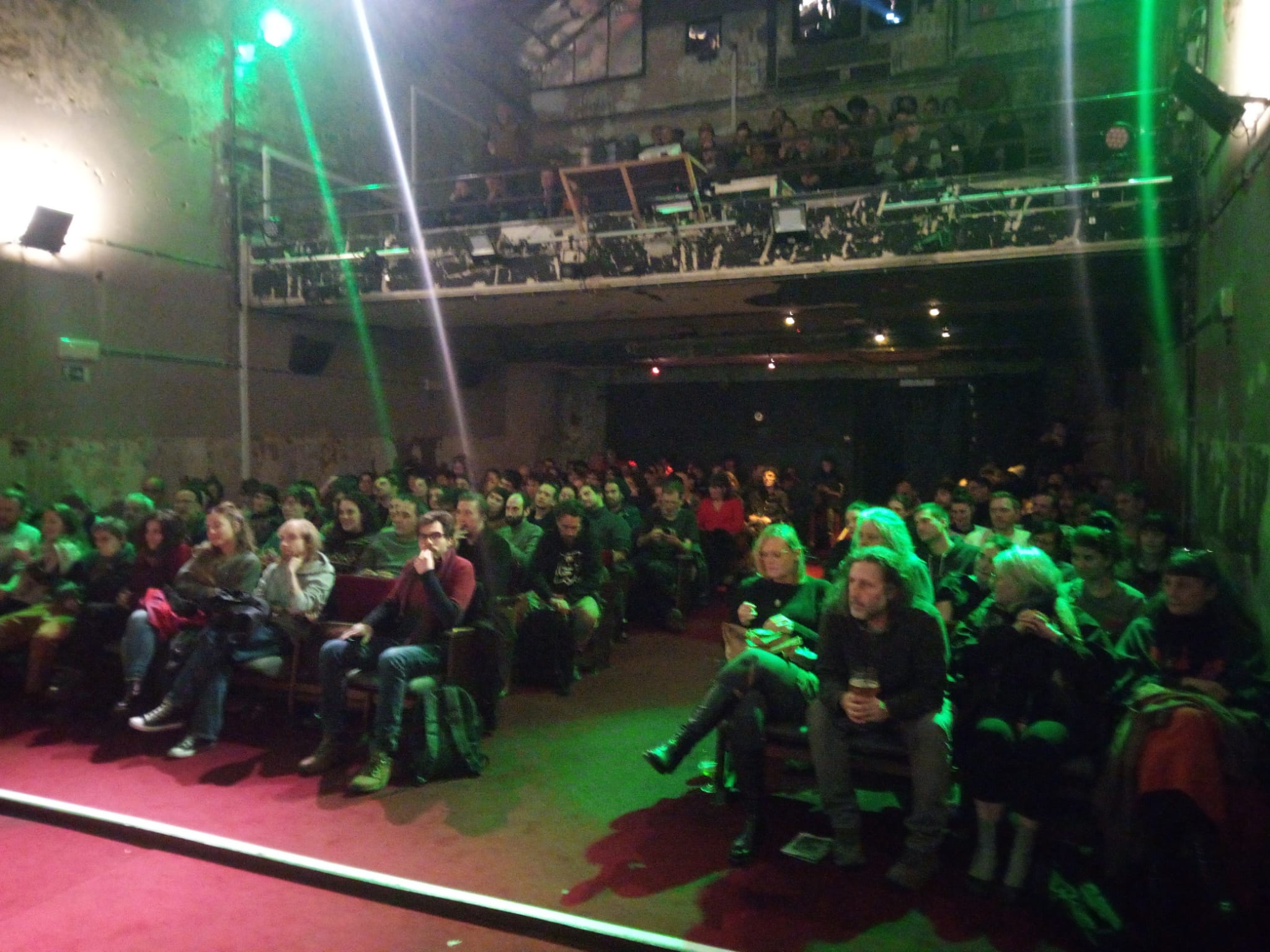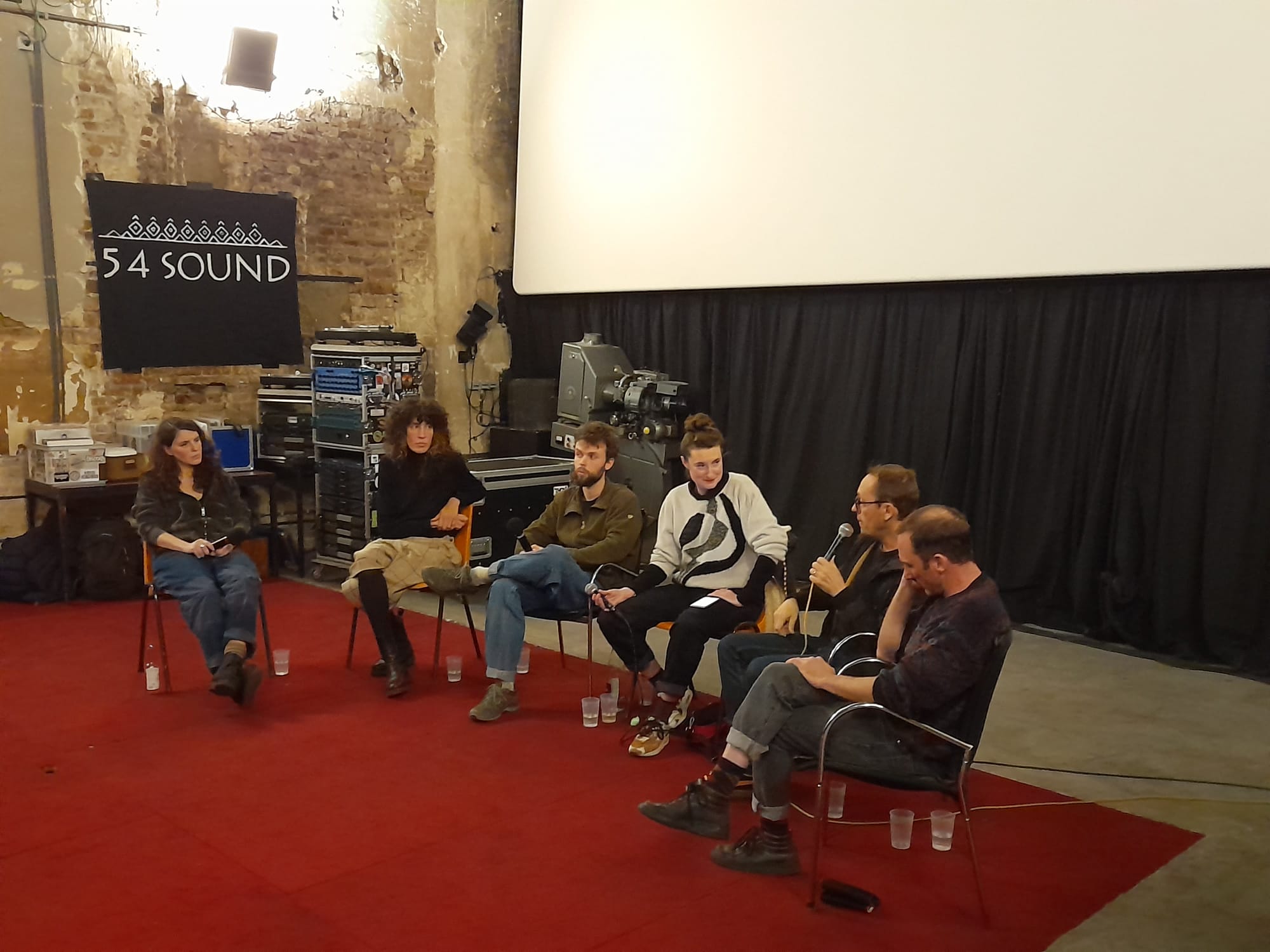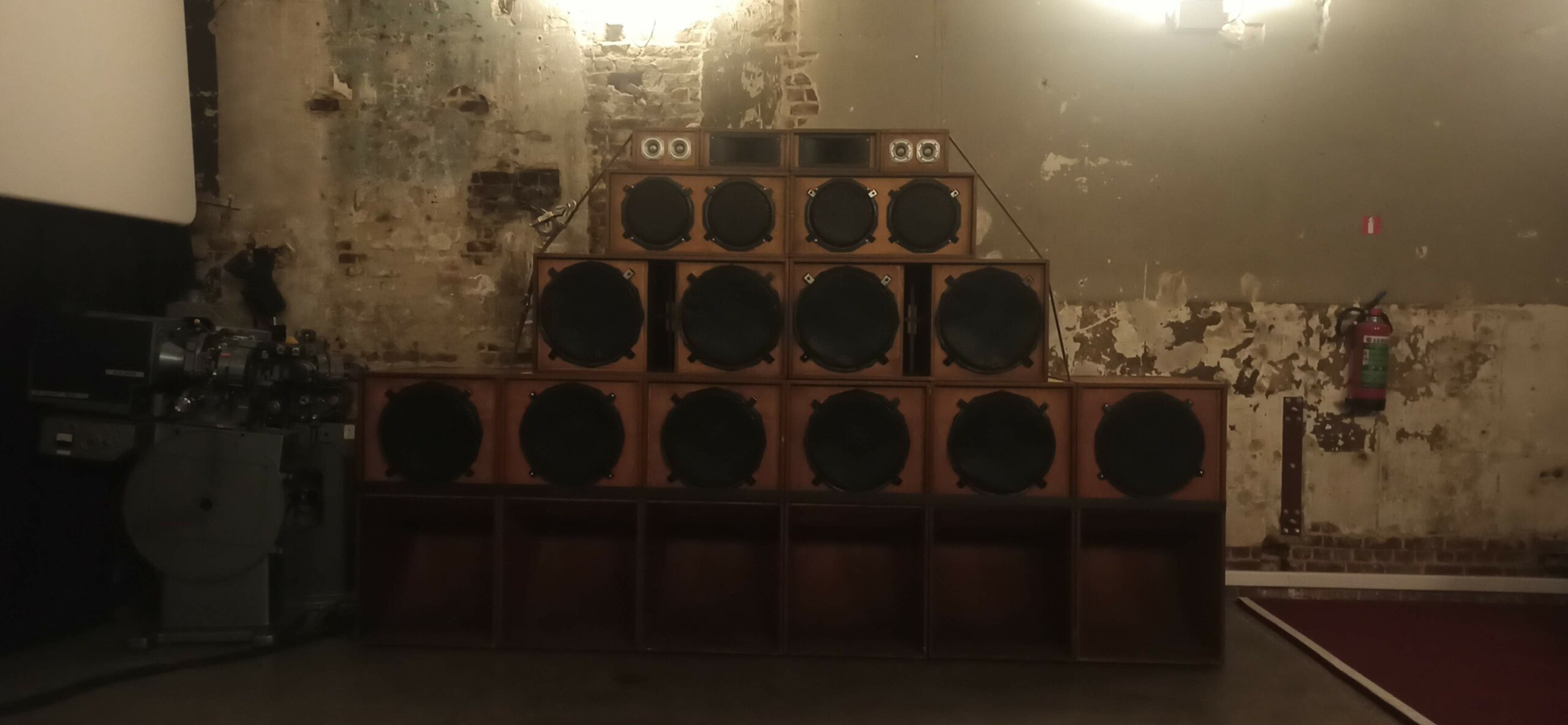Ecosophy of Sound Systems in Brussells
As a research project, SST values not only describing different scenes around the world but also trying to provide a deeper understand of how and why they came about. We are very keen to acknowledge and respect participants own understanding as it has been the feature of several “reasoning sessions” in Jamaica see this blog and London see this blog. Indeed, this is a vital component of the SST non-extractive methodology. In addition, we believe that a scene can also gain from being placed in a “theoretical framework” such as the “ecosophy” described in what follows. This is the kind of approach that allows the operations, aims and ambitions of a scene to be considered as relevant to broader contexts. This is the case of the Sound System Culture event held in Brussels in December 2023, which SST had the pleasure to contribute to. SST France team member Jean-Christophe Sevin takes us inside the discussion from an ecosophical perspective.
by Jean-Christophe Sevin
The ‘ Sound System Culture’ event took place on December the 2nd at the Cinéma Nova in Brussels. It was organized by Culture & Démocratie in collaboration with the association Osmose, Sonic Street Technologies and PointCulture. The evening kicked off with a round table discussion on ‘Collective Ritualities’, followed by a screening of Babylon (1980), Franco Rosso’s seminal film about sound systems in London, and a reggae session with 54 sound system.
In the context of this blog, I’d like to concentrate on the practices discussed during the roundtable, in which I took part along with members of collectives, sound systems, venues and associations that participate in or run sound system events. Among them, Dries Talloen (Roots Explosion Soundsystem), Souria Cheurfi (Psst Mlle), Maxime Lacôme, (Axoso), Jean-Christophe Sevin (Sonic Street Technologies), Rrita Jashari (54 Kolaktiv), Margaux Notarianni et Sara Lovisetto (Osmose).
Following Felix Guattari, these practices trace out what might be called an ecosophical perspective [1], in that they are concerned with the ways in which sound system sessions operate, and with the individual and collective subjectivities of the audience. More specifically, I’d like to highlight what seems to me to be both a mental and a social ecology, two of the three ecologies that, along with environmental ecology, make up Guattari’s ecosophy.
Right from the start of the discussion, Culture & Démocratie co-coordinator Hélène Hiessler’s reference to rituals as “tools of struggle” and “grounds for experimentation”, as well as the need for “new imaginaries to nourish a process of radical change of cultural model”, resonated with the ideas suggested by the author of Trois Ecologies. According to Guattari, the response to the ecological crisis could not be limited to technocratic solutions but has to include changes in the fields of sensibility, subjectivity and social relations, since the ecological imbalances caused by the capitalist mode of production also affect the human psyche and social relations.

Event advertising at Cinema Nova
Mental Ecology
By mental ecology, Guattari means what is involved in producing subjectivity, which is neither inside nor outside an individual subject, but circulates between them to form existential territories. The spaces of life and experience that are constantly being shaped by this production of subjectivity are referred to as existential territories in the making. Sound system culture can be understood as one of these existential territories, where the “aesthetic-existential” (p.45) efficacy of music and dance is central, especially through its “curative,” not merely recreational, aspect. In this sense, the mental ecology is also that which brings into play a “sonic body” [2], a body that feels and thinks as the subject of the experience of the sound system. This is where the “sonic dominance” [3] means that sound takes on a form of materiality, a tactile dimension through which it connects us to our bodies and to the world.
We can relate this to the aims of the Osmose project, described by co-founder Margaux Notarianni as a “consciously militant project that intends to perpetuate the party scene as a site of self-expression through the body, as a tool for liberation, power and empowerment.“ The politics of care provides them with a framework for intervention that is consistent with the dimension of care that sound systems can have. However, they note that this dimension tends to be lost: “Today, many people ignore the history of sound system culture or reduce it to a simple commercial tool“. For Osmose, it is essential to preserve this mission, to give visibility and power back to the individuals involved. The collective places particular emphasis on the experiences of gendered and racialised people, as well as those who are passionate about the field and have in-depth knowledge.

Full room at Cinema Nova
According to Guattari, an imperative of mental ecology is to “re-appreciate the finality of work and human activities according to criteria other than those of return and profit” (p. 46). Sound system sessions can thus be seen as generating a dissident subjectivity, supporting the production of an existential territory that escapes the market and the reduction of human interactions to economic relations. The promotion of a subjectivity that is not aligned with the mass media, centred on respect for individuality can also be seen in the aims and practices of collectives such as Osmose and Psst Mademoiselle, which question “the intention with which we participate in a party”. They note that a “consumer relationship” often causes parties to be perceived as products to be “passively” consumed. What they are trying to do is to create a more interactive and participatory space, by nurturing a sense of legitimacy in partygoers to be an active participant. In other words, they are trying to make participation an active contribution, where the audience not only takes part in the session, but also contributes to it in a way that reflects their values, so that they can receive a share of it [4], creating a “give and take” space, to use Osmose co-founder Sara Lovisetto’s words.
We can draw a parallel with the history of 54 Kolaktiv, a collective formed by a group of friends who used to spend time in Place Sainte Catherine in Bruxelles (54 for Sainte Cath), which they saw being transformed into a commercial space, with more and more terraces. Their events take place in different formats and in different types of venues, including public spaces to offer an alternative to the politics of gentrification and the dominant vision of the city. It’s important for them to try to be independent, “to avoid clubs or places where there are a lot of rules. To also maintain an accessible entrance fee, free toilets, etc”.

Roundtable discussion
Social ecology
Collectives such as Osmose and Psst Mademoiselle also look beyond the audience to the way the events themselves work. In this respect, they can be compared to the invention of François Tosquelles and the institutional psychotherapy in which Félix Guattari was a key figure [5]. The basic principle of institutional psychotherapy was to “treat the institution as much as the individuals” and to ensure that each member of the institution was an active part of the therapy, including a critical reflection on its own functioning to guard against any authoritarianism. This kind of approach can be seen in the way these collectives invest in sound system sessions to ensure that every participant in the event becomes an active element. This is what Guattari calls social ecology, which seeks to reconstruct human relationships in all social environments by proposing a generalisation of institutional analysis. [6]
While Osmose’s initial focus was on the public, taking action to reduce the risks of aggression, injustice and violence, their scope has now expanded to include respect for the venue, the equipment and the bar and security staff. The Psst Mademoiselle collective is also interested in the physical space of parties, considering elements such as lighting and the possibility of sitting down or getting some fresh air. By actively involving the audience, they seek to improve safety to positively influence the atmosphere of the dance, the “vibe”. In their events, the members of Psst Mademoiselle challenge the conventions of nightlife, in particular the spatial organisation, where the audience is often separated from the DJ by a front stage (though this is never the case with a reggae sound system session). They have experimented with other formats, inviting the audience to co-create the space and imagine new scenographies together.
For Guattari, the re-appropriation of the media by a multitude of groups capable of managing them in a way of re-singularisation is a “primordial programmatic point” (p.52) of social ecology. And the sound systems movement can clearly be seen as part of this programme. Collectives build their own audio equipment based on shared resources and knowledge. They also turn to independent builders for certain components (‘preamps’) that can meet specific requirements, resulting in sound systems that have their own unique sonic identity.
The members of Bruges-based sound system Roots Explosion also contributed to the discussion. Roots Explosion started building their sound system shortly after organising their first parties. They describe it as “a process of learning by trial and error over several years.” 54 kolaktiv crowdfunded their sound system and involved the community in their plans. They have benefited from the advice of experienced reggae dub sound systems such as Jahmbassador Hi-Fi and Ionyouth. Because of this collective funding, their approach has led them to emphasise the collective ownership of the sound system, underlining their desire to make it accessible.

54 Sound System at the after party
The sound system as a model and area of intervention
Sound systems appear to be both a source of inspiration through their ‘post-media’ dimension and an area of intervention regarding the subjectivity manifested in the sessions.
Thus, Psst Mademoiselle has focused on presenting artists who face gender discrimination (sexism, cissexism and heterosexism), before deepening its reflection on access to artistic practices, culminating in the organisation of music-making and production workshops. In this way, they promote the reappropriation of this technical knowledge, which comes from practices that are often dominated by men. This includes both DJing sessions and the project to build a sound system. “The approach was inclusive: come along! Who can do what? Let’s get together and try”.
Finally, let’s take a look at the Atelier de Création Sonore et Sauvage (Axoso), which is not strictly speaking a sound system, but whose operating principles resonate with what has been discussed so far. Axoso promotes the practice of music in an inclusive and improvisational way, without the need for musical knowledge. In their workshops, participants gather in a circle to create amplified music, which is recorded for later listening and reproduction. This approach has given rise to a number of musical communities, including the ‘Orchestre Sauvage de Belgique‘, which began by making instruments with young people from a housing estate, the Visitandines. The children designed and built their own instruments using tools such as jigsaws and drills, giving them access to DIY and technical manufacturing. L’Axoso works in a day centre for people with mild mental disabilities.
The Micuicocola group is the result of workshops aimed at empowering them through music, in which participants write songs and experiment with equipment such as loudspeakers, a mixing desk, contact microphones, synthesizers and microphones. The sessions begin with collective improvisations that gradually evolve into the composition of structured pieces. Micuicocola operates without a clear hierarchy: members take turns singing, toasting and playing instruments, with no dominant conductor. This encourages collaboration and allows everyone to express themselves musically in an inclusive and creative environment. Again, the interchangeability of roles reflects a structuring principle of institutional psychotherapy.
What we have here, then, is a collection of practices carried out by a variety of collectives that have sound systems or similar practices in common. The aim of this brief presentation was to show the overall coherence that emerged from the discussion – the success of which is also due to the quality of the preparation and moderation by Emmanuelle Nizou – based on the insights provided by the ecosophical approach and the Guattarian-inspired institutional analysis.
About the author:
Jean-Christophe Sevin is a lecturer in information and communication sciences (Avignon University/Centre Norbert Elias). After investigating the political and cultural reception of raves and techno music in France, he is working on the trans-local dynamics of reggae and sound-system culture.
References
[1] Ecosophy challenges the anthropocentric vision that places humans at the top of a hierarchy of living beings. Félix Guattari combines this rethought environmental ecology with a social ecology and a mental ecology. Cf. Felix Guattari, Les trois écologies, Editions Lignes, (1989) 2024. Pages in brackets in the article refer to this book, unless otherwise stated.
[2] Julian Henriques, Sonic Bodies: Reggae Sound Systems, Performance Techniques, and Ways of Knowing, Bloomsbury, 2011.
[3] Julian Henriques speaks of sonic dominance when sound dominates all other sensory modalities and acquires a form of autonomy where it is usually subordinated to the visual order that dominates our sensory and media culture. See «Sonic Dominance and the Reggae Sound System Session», in Michael Bull, Les Back (Eds), The Auditory Culture Reader, Berg, 2003, p. 451-480.
[4] See Joëlle Zask, Participer. Essai sur les formes démocratiques de la participation. Le bord de l’eau, 2011.
[5] See Camille Robcis, Désaliénation. Politique de la psychiatrie. Tosquelles, Fanon, Guattari, Foucault. Editions du Seuil, 2024.
[6] Manola Antonioli, Postface to Les trois écologies, op. cit., p.89.
[7] The French terms ‘sexisè’ was used in the roundtable to indicate “a person who faces gender discrimination (sexism, cissexism and heterosexism).”
